Smart DNS is a technology that alters your DNS settings to bypass geo-blocking. It operates by redirecting location-related traffic through a different server, effectively replacing your location data with that of an unrestricted zone. So, as you browse or stream, you’re not constricted by your geographic location. It offers quicker streaming speeds than VPNs, as it doesn’t encrypt data – focusing instead on breaking down geo-barriers. However, that means it sacrifices some privacy and security features. As you further explore, you’ll find out how to set up a Smart DNS and how it stacks up against other geo-unblocking methods like VPNs.
Key Takeaways
- Smart DNS is a technology that alters DNS settings to bypass geo-blocking, providing access to restricted content.
- It works by replacing location data with that of an unrestricted area and diverting location-related traffic through a different server.
- Smart DNS is faster and simpler than VPNs, but it does not provide the same level of security and privacy.
- Setting up a Smart DNS involves signing up with a service provider, adjusting DNS settings in your device, and confirming the setup.
- Potential risks of Smart DNS include security exposures due to lack of encryption, compatibility issues, performance concerns, and potential streaming blocks.
Understanding Geo-Blocking
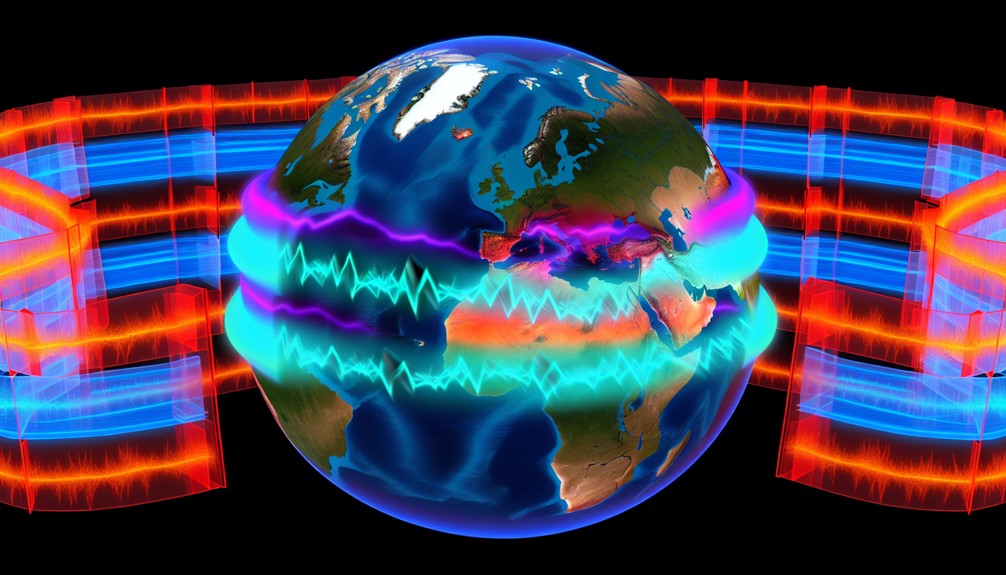
You’ve probably encountered geo-blocking at some point, even if you’re not quite sure what it is. Essentially, it’s a technology used by companies and governments to restrict your access to certain websites based on your geographical location. It’s a form of digital discrimination, denying you the freedom to consume content on your terms.
Geo-blocking works by identifying your IP address, which is unique to your internet connection and provides information about your approximate location. When you try to access a geo-blocked site, the site’s server checks your IP address. If it determines you’re in a location where access is restricted, you’ll be blocked.
This form of censorship can be quite frustrating, especially when it’s used to limit your access to entertainment content like movies, TV shows, and music that’s freely available to people in other countries.
It’s also used to enforce price discrimination, with companies charging different prices for the same product or service based on where you’re located. Unfortunately, geo-blocking is a growing trend, with more and more sites using this technology to control who can and can’t access their content.
What Is Smart DNS?
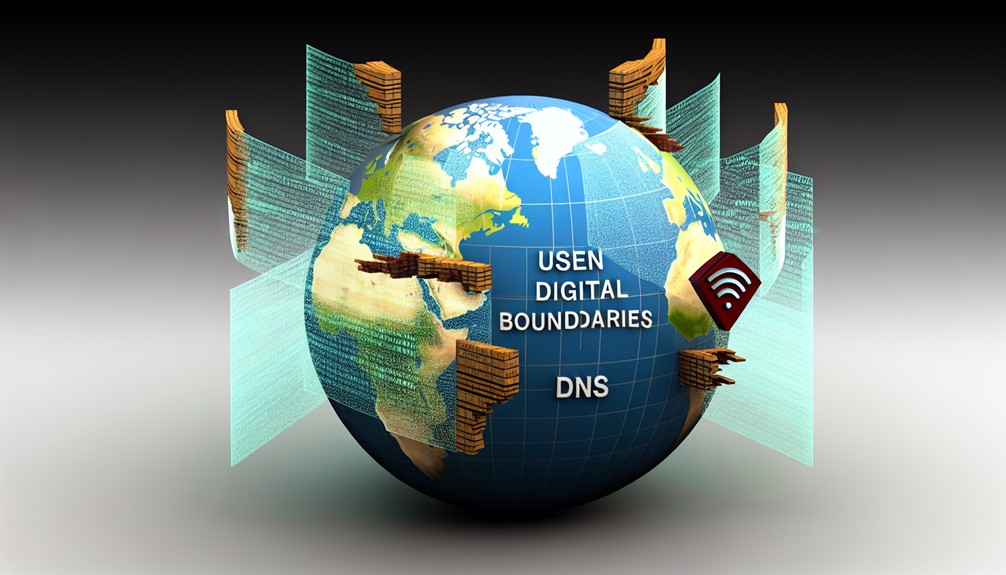
Without the aid of certain tools, overcoming the challenges of geo-blocking may seem impossible. However, Smart DNS is one such tool that you can utilize to bypass these restrictions.
As the name suggests, Smart DNS is a technology that alters your Domain Name System (DNS) settings, steering your internet connection towards a different geographical location. This effectively sidesteps the geo-blocking barriers.
Smart DNS doesn’t change your IP address; rather, it works by re-routing only the traffic needed to determine your location. This means you can access content restricted to certain regions without actually being physically present there. It’s an ingenious workaround that’s both efficient and user-friendly.
Importantly, Smart DNS isn’t a one-size-fits-all solution. It won’t provide anonymity or encrypt your data like a VPN would. It’s primarily focused on granting you freedom to access geo-blocked content.
For those of you who crave an open, unrestricted internet experience, Smart DNS is a viable option. However, remember that it doesn’t offer the same level of security or privacy as other tools.
The Mechanics Behind Smart DNS
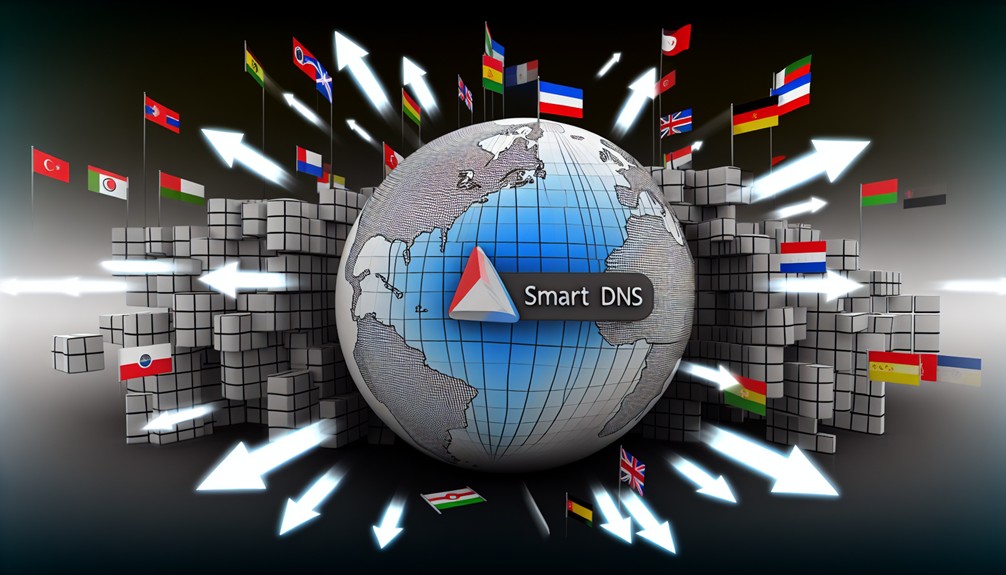
Often, you might wonder how Smart DNS achieves this impressive feat of bypassing geo-blocks. The secret lies in its ability to disguise your location.
Unlike a traditional DNS server that links your IP address to your geographical location, a Smart DNS server replaces the data linked to your location with data linked to a geographical location where the desired content is accessible.
It’s a clever trick. When you request a geo-blocked site, the Smart DNS server intercepts your request. It then diverts the part of your traffic related to your location through a server in an unrestricted location.
It’s important to note that, unlike VPNs, Smart DNS doesn’t change your IP address or encrypt your data. It only reroutes specific parts of your traffic, making it a faster, more efficient solution for streaming content.
However, while Smart DNS provides a seamless streaming experience, it doesn’t offer the same level of security as a VPN.
It’s a trade-off: speed and ease of use versus security and privacy. Ultimately, the choice depends on what you value more in your quest for unrestricted internet access.
Benefits of Using Smart DNS

Leveraging Smart DNS services can yield a multitude of benefits for the savvy internet user. As a tool that breaks down geo-blocking barriers, it’s a powerful ally in your quest for digital freedom.
It’s not just about unlocking content; it’s about enhancing your online experience in a variety of ways.
Here’s a rundown of what you stand to gain:
- Speed: Smart DNS doesn’t encrypt your data, which means you’ll experience faster streaming speeds compared to other methods, like VPNs.
- Simplicity: It’s user-friendly. Once set up, you won’t have to worry about toggling it on and off.
- Flexibility: It works on virtually any device – from your laptop to your smart TV.
- Global Content Access: It allows you to bypass geo-restrictions, giving you access to content from all around the world.
- Cost-effectiveness: It’s generally cheaper than other geo-unblocking solutions.
In essence, Smart DNS is a tool designed to maximize your internet freedom.
It’s worth considering if your primary goal is to access geographically restricted content without sacrificing speed or ease of use.
Comparing Smart DNS and VPN

Regularly, you might find yourself weighing the pros and cons between Smart DNS and VPN services.
Here’s a brief, yet technical comparison of the two.
Smart DNS is essentially a technology that reroutes a portion of your Internet traffic through a server in another country. It’s fast, as it doesn’t encrypt your data, and it’s perfect for streaming high-quality media content that’s been geo-restricted.
It doesn’t change your IP address, however, so if you’re concerned about anonymity, it’s not the best choice.
On the other hand, a VPN, or Virtual Private Network, is a more comprehensive solution. It encrypts all your Internet traffic, rerouting it through servers worldwide.
This not only allows access to geo-blocked content but also ensures your online activities remain private. It’s excellent for maintaining anonymity but can slow your Internet connection due to the encryption process.
Setting Up Your Smart DNS
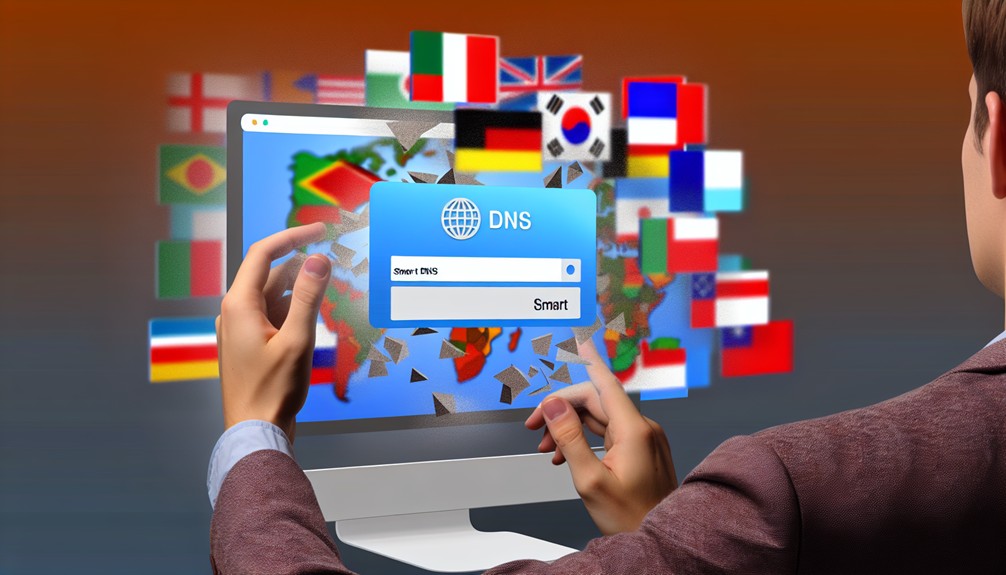
Setting up your Smart DNS isn’t as daunting as it might sound.
It’s a straightforward process that can be accomplished in just a few steps. This liberating technology allows you to bypass geo-blocking restrictions and experience the internet without borders.
Here’s a succinct guide to get you started:
- First, sign up with a Smart DNS service provider. Look for reliable providers that offer extensive global coverage.
- Next, you’ll need to configure your device’s DNS settings. This is usually done under the ‘Network Settings’ or ‘Internet Settings’ of your device.
- Replace your current DNS addresses with the ones given by your Smart DNS provider.
- Confirm the change and restart your device for the settings to take effect.
- Finally, visit your provider’s website and check if your IP is successfully configured.
Potential Risks and Downsides
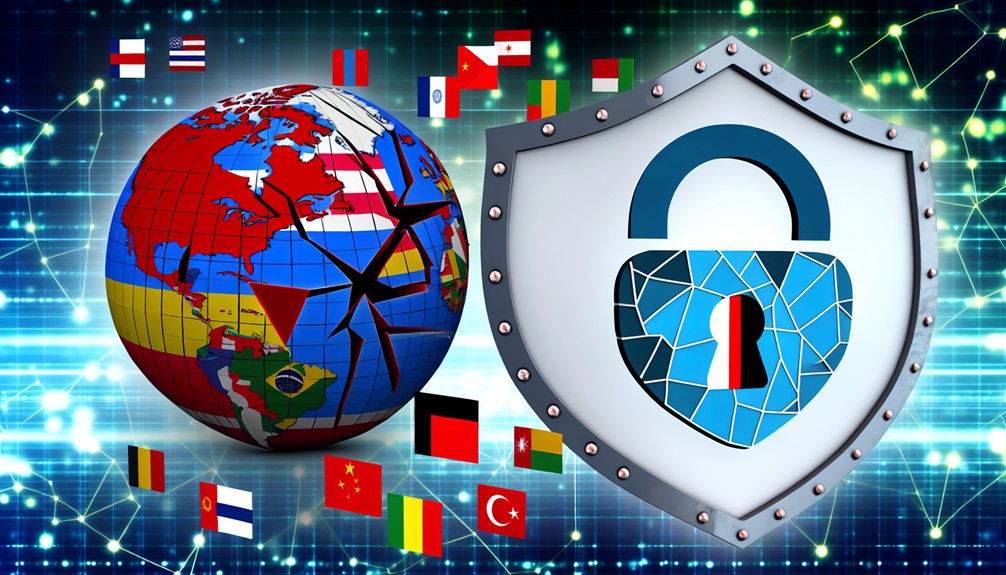
While the convenience and freedom of Smart DNS can be alluring, it’s worth noting the potential risks and downsides of this technology. Predominantly, Smart DNS doesn’t offer the same level of security that a VPN provides. Since it only reroutes specific traffic, it leaves the majority of your online activities exposed. This means that while you’re enjoying global content, your data isn’t encrypted and can be intercepted by prying eyes.
Moreover, not all Smart DNS services are equal. Some mightn’t support all platforms or devices, limiting your freedom to enjoy geo-blocked content across multiple devices.
You’ll also need to be wary of services with slow DNS servers, as these can degrade your browsing and streaming experience.
Another downside is that some streaming platforms are now detecting and blocking Smart DNS usage. This could leave you stranded in the middle of a show or movie, disrupting your entertainment.
Frequently Asked Questions
Can Smart DNS Be Used on Multiple Devices Simultaneously?
Yes, you’re able to use Smart DNS on multiple devices simultaneously. It’s designed for flexibility and freedom, letting you bypass geo-blocking on several gadgets at once without affecting your internet speed or overall performance.
What Are Some Reputable Providers of Smart DNS Services?
You’re asking about reputable Smart DNS providers. Some top choices include ExpressVPN, NordVPN, and Overplay. They’re known for their reliability, speed, and ability to bypass geoblocking with ease. Research to find your best fit.
Does Using Smart DNS Affect the Speed of My Internet Connection?
You’re probably wondering if Smart DNS slows down your internet. Generally, it doesn’t! It simply redirects your location-related queries, keeping your speed intact. You’re free to surf without the confines of geo-blocking and speed reduction.
Do I Need Any Special Hardware to Use a Smart DNS Service?
No, you don’t need any special hardware to use a Smart DNS service. You simply change your device’s DNS settings. It’s an easy process and most Smart DNS providers offer step-by-step guides.
Is There Any Kind of Content That Smart DNS Cant Unblock?
Yes, there are limitations. Despite its power, Smart DNS can’t unblock content that’s behind paywalls or services requiring user registration. It breaks geo-barriers, but can’t override subscription or registration requirements. You’re not entirely free-roaming.
Conclusion
In essence, Smart DNS is like a passport, helping you overcome geo-blocking barriers with ease. It’s faster than a VPN, easy to set up, and allows you to access content from different regions simultaneously. However, remember it doesn’t provide encryption, so be mindful of your data’s security. With this knowledge, you’re now equipped to navigate the digital world more freely and intelligently. Keep exploring, keep learning, and let Smart DNS be your guide.

